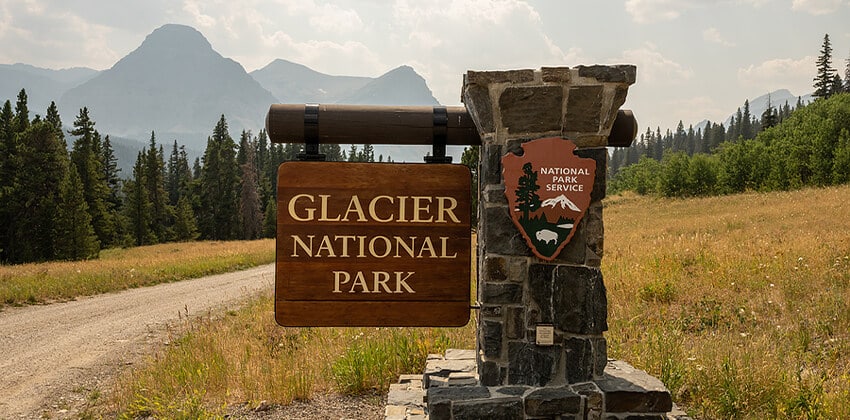
“I’m qualified! Why didn’t they call me?”
If I received a dollar for every time a client asked me the question above, I’d be rich.
The federal job hiring process is very formal and well-documented.
The goal is to find and hire the best qualified job candidates while avoiding discrimination.
As a job seeker, if you cannot follow the steps in the hiring process, you may not be able to successfully follow the processes required by a federal job. Federal hiring managers have many choices to make among candidates.
Why They Don’t Call You for That Federal Government Job Opportunity
The process for filling federal government jobs is substantially different than the non-government (a.k.a. “private sector”) hiring process. Not understanding the difference between the government and the private sector hiring processes is the reason many qualified job candidates are ignored.
These are the mistakes I have seen most often:
1. You don’t CLEARLY meet ALL of the requirements.
As an applicant, you should carefully review the stated required qualifications and the specialized experience requirements. If you meet the basic qualifications but not the specialized experience, you will likely not be rated as well qualified.
Also, if your past experience is in a different field altogether, while you may meet the basic qualifications (e.g., a bachelor’s degree), you are not likely to meet the required specialized experience.
Hiring organizations in all sectors routinely receive hundreds (and sometimes thousands) of applications for every job. An early and main candidate screen is for those who are a match for all of the criteria, eliminating those who do not match all criteria.
While you may match half the criteria desired, from a hiring manager’s perspective, why should they pick YOU, when they can have one or more candidates who (at least on paper) are a 100% match? From a fairness perspective, if your application was considered with only half the qualifications, it would stand to reason that everyone who meets only half the qualifications would be considered.
2. Your experience was too long ago.
Another common question is, “I did exactly what they’re looking for 10 [or 15 or more] years ago, so why was I not called for an interview?”
The answer: While in this instance you may meet all of the qualifications and be rated as qualified, you may not get an interview because the hiring manager may see your experience as dated. Again, from a hiring official’s perspective, should they want the person with updated experience (and perhaps even performing that job NOW), or the person who has not done it in 10 years or more?
3. If you are a current federal employee, forgetting to provide the required supporting federal documentation.
If you currently work for the U.S. federal government, the Office of Personnel Management (OPM) assumes that you have gained experience appropriate to your official occupational series, position description, and pay grade.
If you want to be credited for experience outside your official position description, whether at a higher grade or in a different job series, your temporary work (often known as a “detail”) must also be documented.
Such documentation could include an SF-52 or SF-50 which documents an official detail or an assignment.
Or, it could also include a signed letter from your supervisor. That letter must state the nature and length of the temporary assignment and provide detail about the duties performed (full- or part-time) and the percentage of time other (non-qualifying) duties were performed. This documentation should also be included in your Official Personnel Folder (OPF).
You should also submit the official documentation, along with your resume, when applying for positions where the temporary experience may be needed to support your application, confirming your qualifications for the position.
4. If you are NOT a federal employee, you don’t make your qualifications clear.
If you are not currently working in the federal government, please understand that you must clearly state your full qualifications and experience in your resume.
Unlike the private sector, where reviewers of your resume will often make assumptions or draw conclusions based on your job title, etc., federal government resume reviewers are not permitted to make assumptions or draw inferences:
- If you supervised someone, say so.
- If you managed a budget, include that in your resume, along with the size and other relevant metrics.
Do not make the mistake of assuming that reviewers will automatically understand that you did these things based on your job title or level.
Fine-tune your resume for every job to ensure your resume is customized using the language of the announcement and questionnaire.
For example, if your resume talks about “cybersecurity” and the job posting uses the term “information security,” you should change your resume to include the words “information security” instead.
Don’t dishonestly claim something you didn’t do or a skill you don’t have, but do, when appropriate, match the language used in the posting.
5. All the required documentation was not included.
You failed to submit all required information. Perhaps you forgot to include your college transcript (for positions requiring them), or did not get your DD214 to include it by the announcement deadline (for veterans).
Without all of the required documents, your application may not receive full consideration or the highest rating.
Federal resumes are require the inclusion of hours worked per week, names of prior supervisors, contact information, and salary. While not all federal Human Resources personnel will eliminate your resume from competition if you do not include all required information, they can — so why give them the opportunity!?
6. You are too modest on the occupational questionnaire.
Don’t underrate yourself on the occupational questionnaire. This is not a place for modesty.
If you did not rate yourself highly on the questionnaire, it is unlikely that your application will be scored at a level to be referred to the hiring manager.
Even if a question’s wording is not an exact match for your work, you may still cross-walk your skills and score yourself highly. As long as you can explain your answer, you are good.
7. You don’t have the required experience.
You have “time-in-grade” but do not meet the specialized experience requirements. Without the requisite specific “specialized experience” as defined in the announcement, it is unlikely that your application will be considered best qualified and referred.
Again, be sure to spell out your experience in your resume that aligns with the specialized experience stated in the announcement requirements.
8. You used too much jargon.
When your resume is acronym-laden and full of technical language, reviewers have a hard time telling whether you are qualified or not. Remember, the first audience for your resume is HR, and they are not experts in your field.
If HR does not understand your resume, it will be hard for you to be referred. Even if you are applying within your own agency, connect the dots between technical terms and the job’s requirements.
9. Your resume is too short and lacks important detail.
You are not likely to achieve success when applying for federal jobs with a 1-2-page resume. A typical federal resume is 4-6 pages.
Again, from a federal HR perspective, if it is not on your resume, you did not do it.
Federal HR Specialists are not allowed to make assumptions or draw conclusions about your experience—you need to be clear and specific. Include your experience and accomplishments relevant to this position.
10. Your resume is too long and includes irrelevant information.
If your resume is 10 or more pages long, your resume has far too much content, which could mean you have included too much irrelevant information. The exception would be a scientist with multiple professional publications, and others with similar related documents.
Make good use of your resume “real estate;” everything on your resume should be focused on the job you are applying for. Anything else should be eliminated.
There is no need for your resume to go back 15, 20, or 30 years. Ten years is the main focus.
Older work can be included in a short list (without specific dates so as to not “date” your age) of only job titles and employer names, or not at all. There is usually no requirement to share every detail about your career.
11. Your resume lacks proof of your qualifications.
If your resume is only a list of duties and does not include any measurable accomplishments, it’s like saying, “I do this. I do that. Trust me — I do it well…”
Instead, “prove” your qualifications. The strongest resumes include specific accomplishments for each job you have held in the last 10 years.
Accomplishments should demonstrate the “so what” by clearly documenting how you added value or made a difference to your employer. And, if at all possible, make your accomplishments qualitative or measurable — percentages, dollar amounts, number of staff managed (or clients served), or other measures of improvement.
PRO TIP: do NOT spell out numbers (i.e., “ten” vs. “10”), even for small numbers. The metrics and scope will stand out better with numerals and symbols ($, %, etc.) where applicable.
Your resume has no metrics. Without specific metrics, readers of your resume do not know if the budget you manage is $1, $100, $100,000, or $1,000,000. Your resume should include metrics so that reviewers of your resume understand the full scope of your work.
12. You are applying through the wrong channel.
You are not applying under the appropriate hiring authority or mechanism. If you have federal “status,” you should apply as a status applicant. If you do not have status, you should be applying under delegated examining or all citizens announcements.
If you are eligible for specialized appointment authorities, make sure your USAJOBS Profile appropriately supports your eligibility and your resume clearly demonstrates that eligibility.
There are times that you can apply under multiple hiring authorities. Apply for all you are eligible for so that you can be considered on as many best qualified lists as possible (separate lists are made for different hiring authorities).
The Bottom Line on Federal Government Job Applications
A successful job search depends on being strategic about the jobs you apply for. Do not waste your time or resources applying for every job that strikes your fancy. Instead, focus your energy on those opportunities for which you are a perfect (or nearly perfect) match for the stated criteria. Then, for a federal job, make your qualifications for that specific job very clear in your resume by providing all of the necessary information and required documentation.
More About Successful Federal Job Search
- 7 Steps to Land a US Federal Government Job
- 9 Federal Resume Myths to Ignore
- How to Escape the USAJOBS Resume Black Hole
- How to Avoid Common USAJOBS Mistakes
- 6 Secrets to Success in Federal Interviews
- Don’t Let Your Email Address Ruin Federal Job Opportunities
About the author…
Nancy Segal is a Certified Federal Resume Writer and Certified Employment Interview Consultant who has spent more than 30 years in Human Resources with the US federal government, serving as Personnel Officer, Deputy Regional Administrator, and Special Assistant in the Departent of Defense, the U.S. Treasury, and other government agencies. Now, Nancy is a career coach, speaker, and trainer on the federal hiring process, from entry level through Senior Executive Service. Learn more about Nancy on LinkedIn and through her website SolutionsfortheWorkplace.com.
Don't forget to share this article with friends!




